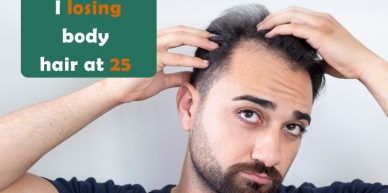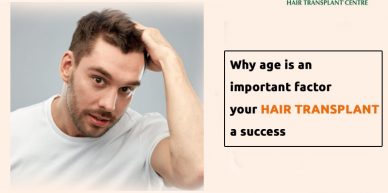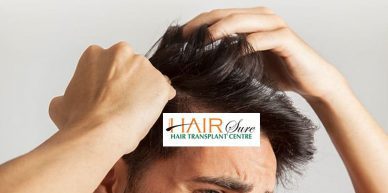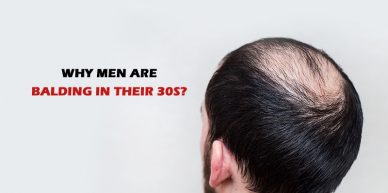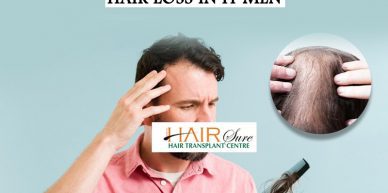Various factors, including stress, hormonal changes, and nutritional deficiencies, can cause hair loss at 25. Telogen effluvium, a temporary condition, occurs when a significant stressor causes a large number of hair follicles to enter the resting phase of the hair...
Is hair transplant for men or women?

Hair transplants are a cosmetic procedure for both men and women experiencing hair loss, often due to hereditary male or female pattern baldness. Hormonal changes, medical conditions, or trauma can also cause hair loss. The procedure involves taking hair follicles from areas of the scalp resistant to falling out, such as the back or sides of the head, and transplanting them to places where hair has been lost. Techniques like follicular unit transplantation (FUT) or follicular unit extraction (FUE) can achieve this goal.
Hair transplant candidates should consult a qualified surgeon to determine suitability and discuss potential risks and benefits. It’s crucial to note that individual results can vary; not everyone may be an ideal candidate for the procedure.
Hair transplant is for both men and women
Hair transplant candidates should consult a qualified surgeon to determine suitability and discuss potential risks and benefits. It’s crucial to note that individual results can vary; not everyone may be an ideal candidate for the procedure.
Hair transplants require realistic expectations and understanding that success can vary among individuals. A qualified medical professional offers personalized guidance based on the individual’s unique situation.

Factors to be considered for hair transplant men and women:
Types of hair loss:
- Male pattern baldness, known as androgenetic alopecia, is characterized by a receding hairline and crown thinning.
- Female pattern baldness is a diffuse condition characterized by overall hair thinning across the scalp, which may not follow a well-defined pattern.
- Hormonal consideration:
- Testosterone and dihydrotestosterone (DHT) are known to be involved in male pattern baldness.
- Hormonal changes, especially during pregnancy, childbirth, and menopause, can cause hair loss, while conditions like PCOS can also affect hair growth.
- Donor hair availability:
- Both genders require sufficient donor hair, typically from the scalp’s back or sides, for successful transplants, and the quality and availability of donor hair significantly impact the transplant process.
- Stability of hair loss:
- Men and women: Stable hair loss patterns are crucial for ideal candidates, and it’s critical to ensure this before considering a transplant to prevent future complications.
- Expectations and goals:
- Men and women: Realistic expectations are crucial for a hair transplant, as it may not fully restore a full head of hair, and discussing them with the surgeon is essential.
- Underlying health conditions:
- Men and women: Health is crucial to a transplant’s healing process and success.
- Age:
- Men and women: Individuals should be of a reasonable age for hair loss patterns, although there is no strict age limit.

- Consultation with a specialist:
- Men and women should undergo a comprehensive consultation with a qualified hair transplant surgeon to evaluate individual factors and determine eligibility.
Hair transplant eligibility may vary between men and women due to specific hair loss patterns, hormonal considerations, and individual health factors. Individuals need to consult a qualified professional for suitable candidates.
Types of hair transplant procedures:
Hair transplant procedures include Follicular Unit Transplantation (FUT) and Follicular Unit Extraction (FUE), which involve transplanting individual hair follicles from a donor area to a recipient area, with the main difference being the donor hair harvesting method.
- Follicular unit transplantation(FUT): FUT, or strip method, involves removing a thin scalp strip from the donor area, where hair is more resistant to falling out and dissecting it into individual follicular units under a microscope that is then used to transplant the tissue into the recipient.
- Follicular unit extraction(FUE): FUE involves directly extracting individual follicular units from the donor area using a punch tool, leaving small, round scars, and then transplanting them into the recipient area.
- Direct hair implantation(DHI): Using a specialized implant tool similar to FUE, follicles are directly implanted into the recipient area without channels.
- Robotic hair transplant: A robotic system is utilized for the extraction and transplantation of hair follicles.
- Artificial intelligence-assisted hair transplant: AI algorithms are being utilized by emerging technologies to aid in the planning and execution of hair transplant procedures.
- Platelet-rich plasma(PRP) therapy: PRP therapy is where patients inject their platelet-rich plasma into their scalp to stimulate hair growth and enhance the health of existing hair follicles.
The choice between FUT and FUE depends on various factors, including the patient’s preferences, the number of grafts needed, the donor area’s characteristics, and the surgeon’s expertise. Each case is unique, and a qualified hair transplant surgeon can help determine the most suitable method based on the patient’s specific circumstances. It is essential to consult a qualified professional to determine the most appropriate procedure based on these factors. The choice between FUT and FUE is crucial for achieving the desired results.
Advantages of hair transplant for both men and women:
- Natural looking results:
A well-executed hair transplant can yield natural-looking results, as the hair is sourced from the patient’s donor area, typically resisting hair loss effects.
- Permanent solution:
Hair transplants offer a permanent solution to hair loss, as the transplanted hair follicles grow naturally in the recipient area.
- Improved self-esteem and confidence:
Restoring a fuller head of hair can boost self-esteem and confidence, enhancing comfort and satisfaction with one’s appearance.
- Customization and natural hairline design:
Skilled surgeons can create a natural-looking hairline and customize the transplant to match the individual’s facial features, ensuring a harmonious and aesthetically pleasing outcome.
- Low maintenance:
Transplanted hair can be treated and styled like natural hair without needing special maintenance or ongoing treatments once it has grown.
Specific advantages of hair transplant for men:
- Effective treatment for male pattern baldness:
Hair transplants are highly effective in treating male baldness, a typical pattern of hair loss.
- Improved beard and facial hair:
Hair transplant techniques, such as beard and moustache transplants, can improve facial hair, offering a solution for men with sparse facial hair.
Specific advantages of hair transplant for women:
- Treatment for female pattern baldness:
Hair transplants are a viable option for women experiencing female pattern baldness or other hair loss, as they help restore density in thinning areas.
- Reconstruction after trauma or surgery:
Hair transplants can benefit women who have experienced hair loss due to trauma, surgery, or other factors, aiming to restore hair in affected areas.
The success and satisfaction of a hair transplant depend on several factors, including the individual’s unique circumstances, hair loss cause, donor area quality, and surgeon skill. It’s crucial to consult a qualified professional to determine the procedure’s suitability for each case.
At Cyber HairSure, we are dedicated to a policy of offering patients unmatched services. At Cyber HairSure Advanced Hair Transplant Clinic, all of your hair-related worries can be expertly resolved, and you can rest assured that your smiles won’t flinch again. Enter Cyber HairSure and exit with the desired appearance.
Cyber HairSure can assist in determining the precise reason for hair loss and offer suitable treatment solutions that are suited to the requirements of the individual. Always consult a medical expert when you have questions about your health. Always consult a medical expert when you have questions about your health.
We, at Cyber HairSure, are committed to providing matchless services to all our patients. All your concerns regarding hair problems can be flawlessly sorted at Cyber HairSure Advanced Hair Transplant Clinic, guaranteeing that you will be left with smiles that won’t fall again. Walk into Cyber HairSure and walk back with the look that you desire. Call 040 49540202 / 8331020202 or email us at cyberhairsure@gmail.com to book your consultation. Visit our website, Hair Transplant Clinic, to know more.



